More on News
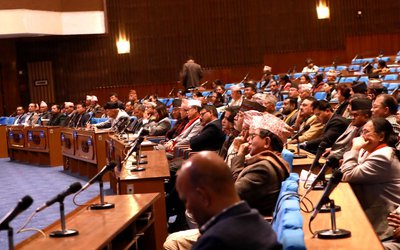
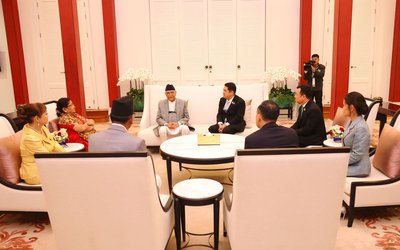
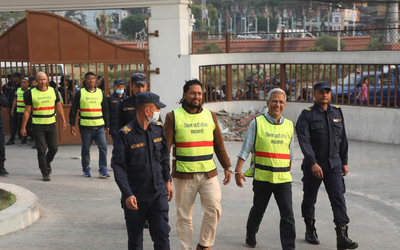
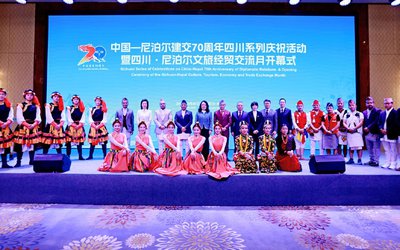
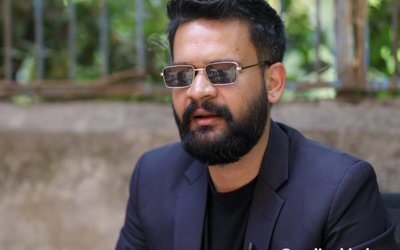
At a time when kidney patients are increasing in the country, qualified nephrologists like Dr. Rishi Kumar Kafle prove to be the saviors.
As renowned nephrologists, Dr. Kafle spends most of his time in the kidney center where patients wait for him in long queues.
“I am happy to serve the needy patients,” said Dr. Kafle.
Dr. Kafle, born on 1st September 1954 in a village called Dhungechhap in Ramechhap district, stayed in the village until the age of 11. He recalls that the only modern development he could see during those days was helicopters that flew over the village. Education during those days was a luxury and he says that he had to walk to and from school each day. The turning point in his life came when he was sent to Kathmandu for his higher education. He received his initial schooling from the village, high schools from the district headquarter and he came to Kathmandu to join Padmodaya High School.
As a professional of high caliber now, Dr. Kafle is making best of his efforts to help ailing kidney patients. Chronic kidney disease includes conditions that damage your kidneys and decrease their ability to keep you healthy by doing the jobs listed. If kidney disease gets worse, wastes can build to high levels in your blood and make you feel sick. You may develop complications like high blood pressure, anemia (low blood count), weak bones, poor nutritional health and nerve damage. Also, kidney disease increases your risk of having heart and blood vessel disease. These problems may happen slowly over a long period of time. Chronic kidney disease may be caused by diabetes, high blood pressure and other disorders. Early detection and treatment can often keep chronic kidney disease from getting worse. When kidney disease will progress, it may eventually lead to kidney failure, which requires dialysis or a kidney transplant to maintain life.
No matter what, disease prevention is better than cure and this applies even more in cases of poor countries like Nepal. Both dialysis and transplantation are very expensive treatments and not all can afford this. Understanding the magnitude of the problem, like minded individuals, engaged in various walks of life, felt a need to establish a non-governmental, not for profit organization which would provide proper health care facilities to the people at a much lower cost. As a result Health Care Foundation- Nepal (HECAF-Nepal) was established in 1994. One of the main areas HECAF is involved is the functioning of the National Kidney Center (NKC).
“Kidney Related Problems Are Emerging”
Dr. Kafle, the founder president of the Health Care foundation Nepal, is still an active board member of this institution. In a brief interview with Shradha Gyawali, Dr. Kafle revealed many things about himself. Excerpts:
How did you choose your profession?
During those days we dint have much exposure and thus didn’t get an opportunity to choose my profession. I was extremely good at mathematics until my SLC and thought of becoming an engineer but my family members wanted me to become a doctor because of my good academics.
If you could have had any other profession what would that be?
Doctor, there is no other noble profession than medicine. Everyday we come across people who are sick and help them in the best possible way. Though medicine is a profession “with no time for yourself and you family” but still it gives me enough mental pleasure which encourages me to work better each day.
What do you see ahead of National Kidney Center in the next five years?
I am very positive about the growth of Health Care Foundation Nepal (HECAF/Nepal) and its activities where the National Kidney Center is the main activity we are focusing at the moment. In five years we will have nearly 75 dialysis machines and we will try our best to construct our own building with world class facilities to run our dialysis services. We will also take ISO certification and will be helping KIST Medical College to produce kidney specialists in the country. We will also try and spread awareness for the prevention of kidney diseases so that the number of kidney patients in the country could decrease. We are so focused on the treatment at the moment and now need to focus on the prevention part of it.
What suggestion would you like to give to the people who want to follow your path?
“It’s really easy” to become a nephrologists. But it is not as easy to be a qualified and dedicated nephrologists; it is very difficult, as you should be ready to dedicate the maximum time to the society. Awareness about kidney diseases is being spread so the task for new nephrologists is going to be easier. If there are people who really wish to serve the society there is a lot to do and I am sure the young generation will take this challenge.
When did you establish the Center?
National Kidney Center was founded in the year 1997 with five dialysis machines and performed 724 sessions of dialysis in the entire year then, today this center proudly boasts of 35 dialysis machines and now monthly we are doing about 2800 sessions of dialysis. Not only has Health Care Foundation been working on the treatment of kidney disease but it has been helping in other various areas of necessity as well.
What is Health Care Foundation all about?
Health Care Foundation Nepal sponsors and promotes many activities. The include National Kidney Center ,National Ambulance Center ,Nagarkot Community Health Center ,Preventative Health Care, Disaster Management ,Medical Waste Management.
How do you see medical waste?
Medical waste management is a major problem in our country and it is only Health Care Foundation that has taken this issue seriously and has been working on medical waste management intensively.
How safe kidney transplant is?
Kidney related problems are emerging as a major concern in Nepal today. It is estimated that 2.6 million of our population suffers from this deadly kidney disease. Demand for dialysis is greatly increasing but there are not enough and adequate facilities that provide treatment and thus treatment in the country are very expensive. Our country is in dearth of these kinds of organizations that help people selflessly and help in eradicating health problems in our society.







